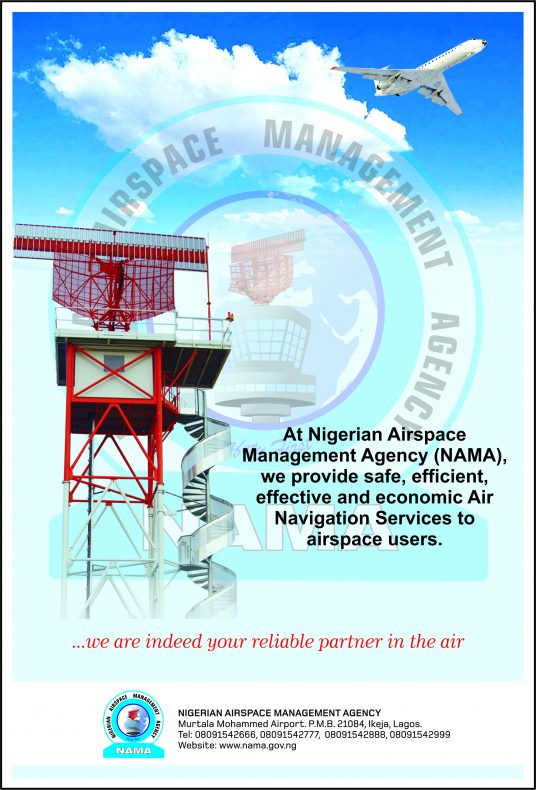By Gbenga Olorunpomi
The Nigerian aviation sector recovery has undoubtedly undergone significant changes over the past decade, with the COVID-19 pandemic marking a pivotal moment. The pandemic led to a near-complete shutdown, as public health concerns took precedence over economic and leisure activities. However, while pandemic-related restrictions have since eased, the sector still faces challenges, including sluggish investment, poorly planned airport construction by regional authorities, and unresolved financial commitments by stakeholders. These factors have compounded existing issues, such as high operating costs and outdated infrastructure, making recovery efforts more complex.
In the aftermath of the pandemic, the aviation industry has been grappling with how to regain momentum.
Although international travel has picked up and airlines report increased passenger numbers, lacking coherent investment strategies has affected growth. Additionally, the ongoing economic downturn has further impacted the sector, making recovery more challenging for the entire aviation industry.
In response, stakeholders have increasingly pushed for private-sector involvement to tackle these issues, particularly in expanding infrastructure and modernizing operational models. It was within this challenging environment that Mrs. Olubunmi Kuku, an MBA graduate from DePaul University, was appointed in December.

Her appointment as the first female Managing Director of the Federal Airports Authority of Nigeria (FAAN) marked a significant shift toward inclusive leadership in a traditionally male-dominated sector. Quickly establishing herself as a passionate advocate, Mrs. Kuku brings both optimism and a strategic vision to her role.
During the 2024 Airport Business Summit and Expo (ABSE), Mrs. Kuku addressed the aviation sector’s current state, focusing on strengths and acknowledging challenges. In her speech, she highlighted the sector’s global economic influence and its role in driving GDP growth in Nigeria and worldwide.
She also referenced industry reports predicting that global passenger traffic will surpass pre-COVID levels by 2024, with Africa’s air traffic expected to grow by 2025. This growth, she suggested, offers Nigeria a significant opportunity to become a key player in the global aviation landscape.
Mrs. Kuku further emphasized that, despite challenges, the safety and security of Nigerian airports remain paramount
. “We face challenges, but I want to be clear: our airports are safe. Some may say, ‘You’re not an aviator, so what do you know?’ Well, I’m managing a company, and I rely on the experts around me.
We conduct regular friction tests, with a strict schedule known by every airport manager. If there’s an anomaly, we repeat the test. If you know anything about me, you know I will never compromise on safety.”
In addition to safety, Mrs. Kuku addressed pressing issues like cross-subsidization among Nigerian airports. This strategy involves profitable airports funding less profitable ones, which critics argue creates inefficiencies. She acknowledged that simply expanding airport infrastructure does not guarantee increased revenue, as passenger traffic closely ties to economic development. To ensure the sustainability of Nigeria’s airports, she advocated for greater collaboration between the private sector and sub-national entities. She emphasized that public-private partnerships could be the key to unlocking the potential of underutilized airports across the country.
At the same time, Mrs. Kuku tackled the sensitive yet largely misunderstood issue of concessions, a hotly debated topic in the sector. Concessions involve private-sector management of public assets, and in Nigeria’s case, it has been a point of contention. She acknowledged stakeholder concerns, particularly fears that private entities could prioritize profits over public interest. However, she underscored the necessity of private-sector involvement, given the sheer scale of investment required to sustain the aviation sector.
She explained, “I often remind people it’s not just about building airports. Passenger traffic is closely tied to economic growth. Despite economic challenges like fluctuations and inflation, Nigeria’s geographic position offers a prime opportunity to drive connectivity across Africa and globally. This connectivity is crucial for ensuring the viability of our airports.”
Mrs. Kuku clarified that concessions are not a one-size-fits-all solution but just one of several viable options. “The fears about concessions are valid, but sustaining Nigeria’s aviation sector requires more than government investment alone. It’s impossible for the government to handle it alone. We must explore effective private-sector models and establish legal frameworks that benefit FAAN while protecting the sector.”
In addition to her points on safety and infrastructure, she highlighted concession models, particularly in the UAE, where management contracts facilitated airport expansion. Furthermore, she advocated for joint ventures and public-private partnerships, suggesting that these collaborations could meet specific needs of Nigerian airports.
As part of her broader strategy, FAAN is considering incentives for airlines, such as reduced landing and parking fees at smaller airports. This approach aims to alleviate congestion at major hubs like Lagos Airport while encouraging local operators to use regional airports.
Her vision extends beyond passenger traffic, focusing on boosting Nigeria’s air cargo sector, which she sees as crucial for growth.
She has been in discussions with state governors, private investors, and logistics operators to explore the untapped potential in air cargo. “Nigeria has primarily been an import-driven market, but there are significant opportunities in exports. We’ve begun exploring these through automation and private-sector collaboration,” she stated. She believes streamlining logistics and investing in modern technology can significantly boost Nigeria’s air cargo exports. This strategy, she added, would help position the country as a major player in both regional and global markets.
In her closing remarks, Mrs. Kuku made a strong case for a comprehensive approach to improving airport viability. She reiterated that collaboration is key, emphasizing the importance of partnerships with state governments, private sector players, and international stakeholders. She also stressed the need for continuous innovation in areas such as infrastructure, regulation, and route development.
“By working together, we can unlock the full potential of our airports, ensuring their long-term sustainability. The challenges are significant, but not insurmountable.
With the right strategies and partnerships, we can transform our airports into vibrant economic hubs that drive national development and connect Nigeria to the world.”She concluded with a passionate call to action: “The time is now! Let’s build a brighter future for Nigeria’s aviation industry together.”





















